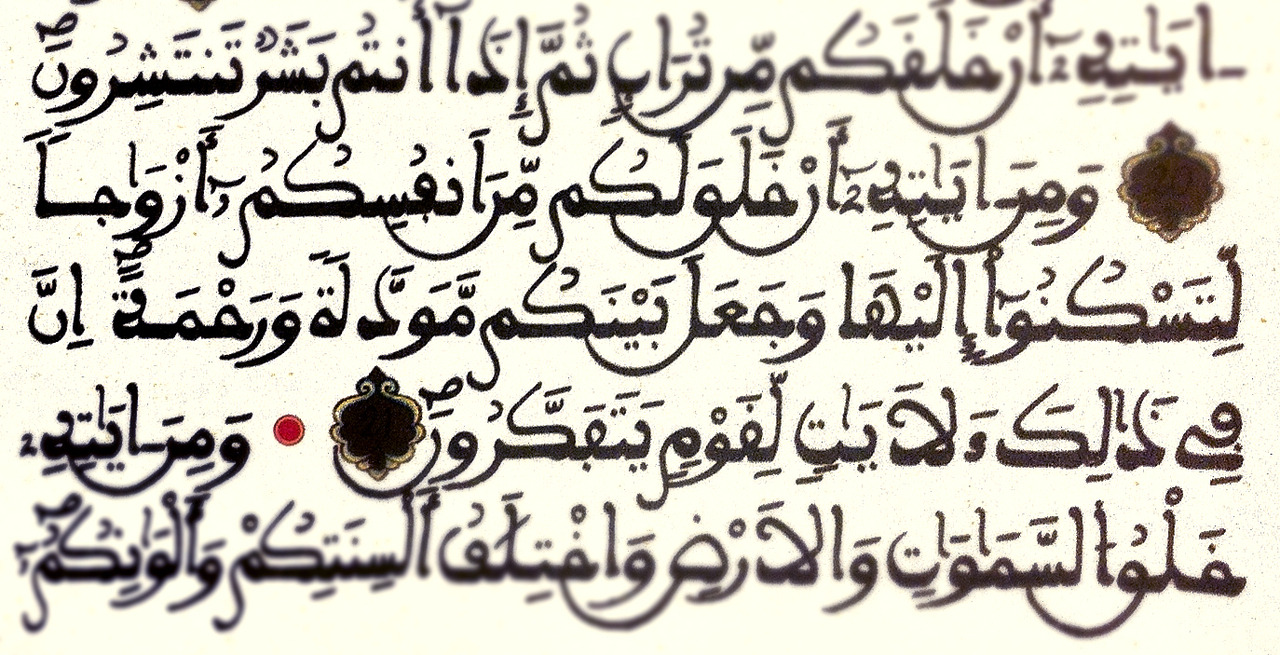Bismillah.
Hadith no. 1773 (below) is a repeat. Read it here.
Narrated Jabir (radiallaahu `anhu):
A caravan arrived (at Medina) while we were offering the Jumua prayer with the Prophet (sallallaahu `alayhi wasallam). The people left out for the caravan, with the exception of twelve persons. Then this Verse was revealed: 'But when they see some bargain or some amusement, they disperse headlong to it and leave you standing." (62.11)
Charity of a Woman: Does she need her husband's permission?
Volume 3, Book 34, Number 279:
Narrated 'Aisha (radiallaahu `anhaa):
The Prophet (sallallaahu `alayhi wasallam) said, "If a woman gives in charity from her house meals without wasting (i.e. being extravagant), she will get the reward for her giving, and her husband will also get the reward for his earning and the storekeeper will also get a similar reward. The acquisition of the reward of none of them will reduce the reward of the others."
Volume 3, Book 34, Number 280:
Narrated Abu Huraira (radiallaahu `anhu):
The Prophet (sallallaahu `alayhi wasallam) said, "If a woman gives something (i.e. in charity) from her husband's earnings without his permission, she will get half his reward."
There is nothing wrong with a woman giving charity from her husband’s wealth if he has given her permission to do so. This permission may be explicit (verbal), such as if he says to her: “You can give such and such of my wealth in charity, or whatever you wish.”
Or this permission may be implicit, such as if people ordinarily agree to such things or it is known from her husband’s attitude that he will agree to that and will not object.
In that case there is nothing wrong with her giving charity from her husband’s wealth, and she will have the reward for that charity as will her husband too.
But if he does not allow her, or if she knows that he would not agree to that, then in that case it is not permissible for her to give anything from his wealth in charity.
Shaykh Ibn ‘Uthaymeen (may Allaah have mercy on him) was asked: Is it permissible for a woman to give charity from her husband’s wealth on her own behalf or on behalf of one who is dead? He replied:
It is well known that the husband’s wealth belongs to the husband and it is not permissible for anyone to give charity from the wealth of anyone else except with his permission. If the husband has given her permission to give charity on her own behalf, or on behalf of whomever she wishes among her deceased loved ones, there is no sin on her, but if he has not given permission then it is not permissible for her to give anything in charity, because it is his wealth and it is not permissible to take the wealth of a Muslim without his consent. End quote.
Majmoo’ Fataawa Ibn ‘Uthaymeen (18/472)
Taken from IslamQA
Note: There's nothing wrong with a woman spending of her own wealth without her husband's permission. She can spend it where she thinks it proper and do charity from it, and there's no harm. Although it's better to consult him and ask him of his opinion to make him feel good and important, according to the scholars. But when it comes to dealing with her husband's wealth, she can spend of it whatever he allows her to. If he is stingy, she can take from it without his permission whatever is sufficient for her needs. And as for charity from her husband's wealth, she needs his permission.

Menu
Menu
Social Media Icons
Labels
Report Abuse
Contributors
سیرتِ النبی قسط نمبر 43
Search This Blog
Random Posts
Label
Recent Posts
Facebook
Recent Posts
Popular Posts
Pages